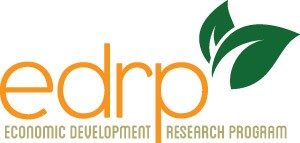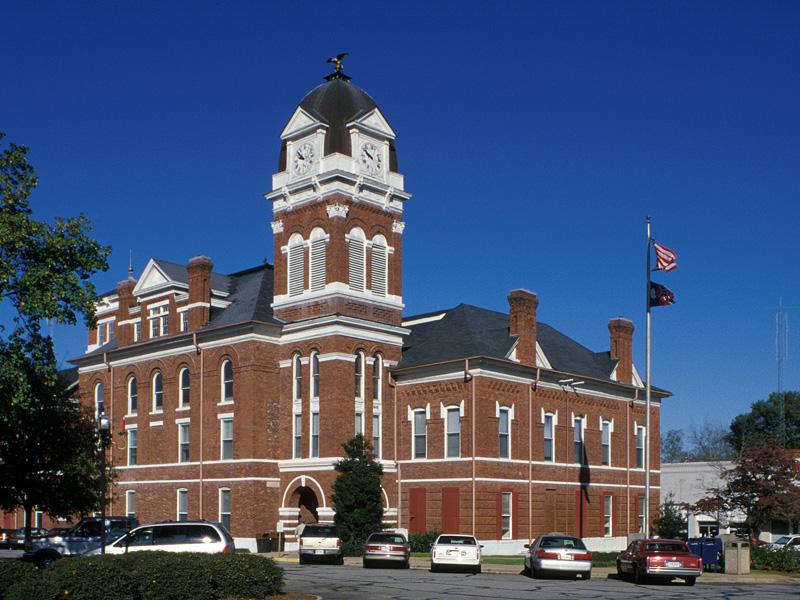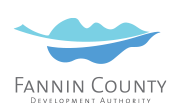Senior Project Manager Leigh Hopkins earns her Certified Economic Developer credential

Economic developers around the state, many with years of experience and expertise themselves, often hire the Enterprise Innovation Institute’s Center for Economic Development Research (CEDR) for assistance with workforce development, strategic planning, fiscal and economic impact analyses, and more. Now, when CEDR gets a call, the program will have one more resource to offer. Leigh Hopkins, senior project manager at CEDR, is a newly minted Certified Economic Developer (CEcD). It’s a national designation that’s been years in the making, and marks Hopkins as an authority in the field of economic development.
The credential wasn’t always her goal. “I’m a city planner by trade and education,” Hopkins said.
She completed a master’s degree in city and regional planning from Georgia Tech in 2005, then worked for the city of Atlanta as well as the private sector before coming back to her alma mater in 2008. After joining CEDR, she got her certification from the American Institute of Certified Planners.
“I’ve held that certification ever since 2010, because it’s the industry credential for the planning profession, and I was hired here to work on projects with a planning component,” she said. “Over time, my job has morphed from planning, which can sometimes be idealistic, into economic development where the rubber meets the road in terms of helping communities implement their plans, but economic development wasn’t my area of expertise at first.”
As her role changed to include economic development-type work — strategic plans for communities and workforce development, primarily — she was encouraged to pursue the CEcD designation. It’s a journey that can take years and involves core classes central to the economic development field, at least four years of work experience, and a three-part comprehensive exam.
“When I started working at Georgia Tech, we had two senior managers who had their CEcD certifications,” Hopkins said. “They were mentors and encouraged us to participate in professional development courses. Georgia Tech is one of the host sites for courses offered by the International Economic Development Council, the accrediting body for the CEcD. I was encouraged to take their classes.”
To receive the certification, candidates must complete four required courses: Basic Economic Development, Business Retention and Expansion, Economic Development Credit Analysis, and Real Estate Development and Reuse. In addition, candidates choose two courses from a list of electives that include finance, marketing, small business development, and neighborhood development strategies. Hopkins selected economic development strategic planning and workforce development as her electives, since they are the areas she works in most often.
Her current boss, CEDR Director Alfie Meek, Ph.D., also supported her in getting the designation. “Our primary clients are the local economic developers around the state, many of whom have the CEcD certification themselves,” Meek said. “As the ‘experts’ who are hired to provide advice and thought leadership to these communities, it gives us instant credibility and rapport with our clients if we have put in the hard work to achieve that same level of professional credential.”
Hopkins agrees that it’s hard work. In fact, only about one-third of those who take the exam pass it. She has some tips for people who are considering it.
-
- Study the books. Much of the test is straight from those.
- Take a prep course or two.
- Practice writing the essays.
- Learn the terminology.
- Get a mentor or study buddy.
“Passing the exam shows that you have arrived in this field,” Hopkins said. “There are also good networking opportunities and good opportunities for professional development within the field.” And while the credential is significant to her, it’s more meaningful in the context of her job.
“It was important to have someone on our staff to get the certification, to add credibility to what we do and how we interact with our clients,” Hopkins said. “I think it gives our clients peace of mind. They feel that they’re in good hands with somebody who is accredited and well-versed in the economic development field.”











